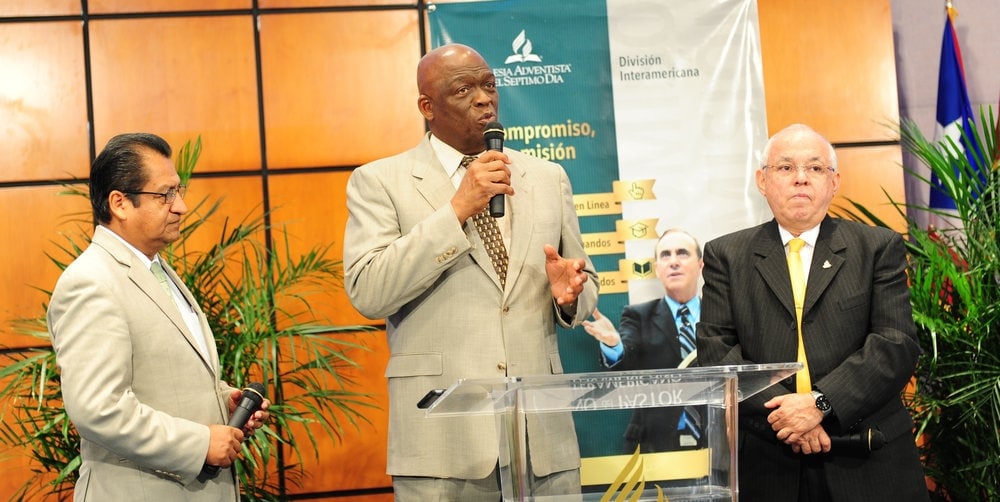
, IAD
Top Seventh-day Adventist leaders sent a clear message to some 1,500 ministers who are not yet ordained and who oversee hundreds of congregations in Central America and the Caribbean: Continue your efforts in preparing a people for eternity.
The message was delivered during a two-hour special program streamed live over the Internet from the Inter-American Division headquarters in Miami, Florida.
“As pastors, we have this blessed opportunity to prepare the way for the coming of the Lord by preparing a people,” division president Israel Leito said. “You must prepare people to stay on God’s path and work to keep them there.”
Church leaders reminded the non-ordained pastors — nearly half of the 3,400 ministers employed by the division — that their work is key to expanding the mission of the church and that they didn’t need to be ordained to share Jesus.
“We want you to continue your commitment in shepherding congregations and work toward getting ordained for greater effectiveness in the ministry,” said Hector Sanchez, ministerial secretary for the division.
Ordination allows ministers to perform weddings, baptisms, and organize and dissolve churches — duties that Sanchez said were significant in advancing the gospel in a division where about 180,000 people are being baptized every year.
But, he said, “there must be clear evidence of his calling and commitment to God and the church.”
The division’s policy sets a four- to six-year course toward possible ordination. After completing seminary training, the theology graduate must work for two years under a pastor who serves as a mentor. If he demonstrates a commitment to his calling during that period, he is assigned to one or two congregations and receives oversight from church leaders responsible for the area for the two to four years. Only after that may his name be recommended for ordination.
But with a limited number of the more experienced pastors qualified to mentor and provide oversight at the division’s 20,000 churches, some of the newer pastors may have been overlooked for ordination, Sanchez said.
Furthermore, division leaders are not sure how many of the 1,500 non-ordained ministers are in their first two years of service, how many are in the second phase of two to four years, and how many have served longer than that.
Either way, Sanchez said, “we are concerned and want that figure to decrease.”
Leito also expressed concern and noted that a division committee approved this week the retirement of a pastor who was ordained 18 years into the ministry.
At the same time, Leito said, not all pastors are called to be pastors, and a decision should be made on ordination in the seventh year of service.